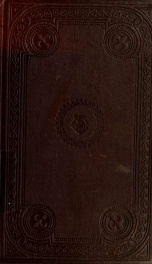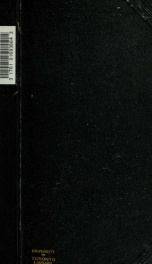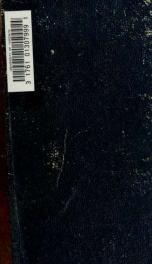origen

Origen (Greek: Ὠριγένης Ōrigénēs, or Origen Adamantius, c. 185–254[1]) was an early Christian scholar and theologian, and one of the most distinguished of the early fathers of the Christian Church. According to tradition, he is held to have been an Egyptian[2] who taught in Alexandria, reviving the Catechetical School of Alexandria where Clement of Alexandria had taught. The patriarch of Alexandria at first supported Origen but later expelled him for being ordained without the patriarch's permission.[3] He relocated to Caesarea Maritima and died there after being tortured during a persecution.[4] Using his knowledge of Hebrew, he produced a corrected Septuagint.[5] He wrote commentaries on most of the books of the Bible.[5] In De principiis (On First Principles), he articulated one of the first philosophical expositions of Christian doctrine.[5] He interpreted scripture allegorically and showed himself to be a Neo-Pythagorean, and Neo-Platonist.[5] Like Plotinus, he wrote that the soul passes through successive stages of incarnation before eventually reaching God.[5] He imagined even demons being reunited with God. For Origen, God was the First Principle, and Christ, the Logos, was subordinate to him.[5] His views of a hierarchical structure in the Trinity, the temporality of matter, "the fabulous preexistence of souls," and "the monstrous restoration which follows from it" were declared anathema in the 6th century.[6] His Greek name, Ōrigénēs (Ὠριγένης), probably means "child of Horus" (from Ὡρος, "Horus", and γένος, "born").[7] His nickname or cognomen Adamantius derives from Greek ἀδάμας, which means "unconquerable" or "unbreakable". Origen was educated by his father, Leonides, who gave him a standard Hellenistic education, but also had him study the Christian Scriptures. In 202, Origen's father was killed in the outbreak of the persecution during the reign of Septimius Severus. Origen wished to follow in martyrdom, but was prevented only by his mother hiding his clothes. The death of Leonides left the family of nine impoverished when their property was confiscated. Origen, however, was taken under the protection of a woman of wealth and standing; but as her household already included a heretic named Paul, the strictly orthodox Origen seems to have remained with her only a short time. Since his father's teaching enabled him also to give elementary instruction, he revived, in 203, the Catechetical School of Alexandria, whose last teacher, Clement of Alexandria, was apparently driven out by the persecution. But the persecution still raged, and the young teacher unceasingly visited the prisoners, attended the courts, and comforted the condemned, himself preserved from harm as if by a miracle. His fame and the number of his pupils increased rapidly, so that Bishop Demetrius of Alexandria, made him restrict himself to instruction in Christian doctrine alone. Origen, to be entirely independent, sold his library for a sum which netted him a daily income of 4 obols, on which he lived by exercising the utmost frugality. Teaching throughout the day, he devoted the greater part of the night to the study of the Bible and lived a life of rigid asceticism. Eusebius reported that Origen, following Matthew 19:12 literally, castrated himself.[8] This story was accepted during the Middle Ages and was cited by Abelard in his 12th century letters to Heloise.[9] Scholars within the past century have questioned this, surmising that this may have been a rumor circulated by his detractors.[10] The 1903 Catholic Encyclopedia does not report this.[11] During the reign of emperor Caracalla, about 211-212, Origen paid a brief visit to Rome, but the relative laxity during the pontificate of Zephyrinus seems to have disillusioned him, and on his return to Alexandria he resumed his teaching with zeal increased by the contrast. But the school had far outgrown the strength of a single man; the catechumens pressed eagerly for elementary instruction, and the baptized sought for interpretation of the Bible. Under these circumstances, Origen entrusted the teaching of the catechumens to Heraclas, the brother of the martyr Plutarch, his first pupil. His own interests became more and more centered in exegesis, and he accordingly studied Hebrew, though there is no certain knowledge concerning his instructor in that language. From about this period (212-213) dates Origen's acquaintance with Ambrose of Alexandria, whom he was instrumental in converting from Valentinianism to orthodoxy. Later (about 218) Ambrose, a man of wealth, made a formal agreement with Origen to promulgate his writings, and all the subsequent works of Origen (except his sermons, which were not expressly prepared for publication) were dedicated to Ambrose. In 213 or 214, Origen visited Arabia at the request of the prefect, who wished to have an interview with him; and Origen accordingly spent a brief time in Petra, after which he returned to Alexandria. In the following year, a popular uprising at Alexandria caused Caracalla to let his soldiers plunder the city, shut the schools, and expel all foreigners. The latter measure caused Ambrose to take refuge in Caesarea, where he seems to have made his permanent home; and Origen, who felt that the turmoil hindered his activity as a teacher and imperilled his safety, left Egypt, apparently going with Ambrose to Caesarea, where he spent some time. Here, in conformity with local usage based on Jewish custom, Origen, though not ordained, preached and interpreted the Scriptures at the request of the bishops Alexander of Jerusalem and Theoctistus of Caesarea. When, however, the confusion in Alexandria subsided, Demetrius recalled Origen, probably in 216. Of Origen's activity during the next decade little is known, but it was obviously devoted to teaching and writing. The latter was rendered the more easy for him by Ambrose, who provided him with more than seven stenographers to take dictation in relays, as many scribes to prepare long-hand copies, and a number of girls to multiply the copies. At the request of Ambrose, he now began a huge commentary on the Bible, beginning with John, and continuing with Genesis, Psalms 1-25, and Lamentations, besides brief exegeses of selected texts (forming the ten books of his Stromateis), two books on the resurrection, and the work On First Principles. About 230, Origen entered on the fateful journey which was to compel him to give up his work at Alexandria and embittered the next years of his life. Sent to Greece on some ecclesiastical mission, he paid a visit to Caesarea, where he was heartily welcomed and was ordained a priest, that no further cause for criticism might be given Demetrius, who had strongly disapproved his preaching before ordination while at Caesarea. But Demetrius, taking this well-meant act as an infringement of his rights, was furious, for not only was Origen under his jurisdiction as bishop of Alexandria, but, if Eastern sources may be believed, Demetrius had been the first to introduce episcopal ordination in Egypt. The metropolitan accordingly convened a synod of bishops and presbyters which banished Origen from Alexandria, while a second synod declared his ordination invalid. Origen accordingly fled from Alexandria in 231, and made his permanent home in Caesarea. A series of attacks on him seems to have emanated from Alexandria, whether for his self-castration (a capital crime in Roman law) or for alleged heterodoxy is unknown; but at all events these fulminations were heeded only at Rome, while Palestine, Phoenicia, Arabia, and Achaia paid no attention to them. At Alexandria, Heraclas became head of Origen's school, and shortly afterward, on the death of Demetrius, was consecrated bishop. At Caesarea, Origen was joyfully received, and was also the guest of Firmilian, bishop of Caesarea in Cappadocia, and of the empress-dowager, Julia Mamaea, at Antioch. The former also visited him at Caesarea, where Origen, deeply loved by his pupils, preached and taught dialectics, physics, ethics, and metaphysics; thus laying his foundation for the crowning theme of theology. He accordingly sought to set forth all the science of the time from the Christian point of view, and to elevate Christianity to a theory of the Universe compatible with Hellenism. In 235, with the accession of Maximinus Thrax, a persecution raged; and for two years Origen is said, though on somewhat doubtful authority, to have remained concealed in the house of a certain Juliana in Caesarea of Cappadocia. Little is known of the last twenty years of Origen's life. He preached regularly on Wednesdays and Fridays, and later daily. He evidently, however, developed an extraordinary literary productivity, broken by occasional journeys; one of which, to Athens during some unknown year, was of sufficient length to allow him time for research. After his return from Athens, he succeeded in converting Beryllus, bishop of Bostra, from his adoptionistic (i.e., belief that Jesus was born human and only became divine after his baptism) views to the orthodox faith; yet in these very years (about 240) probably occurred the attacks on Origen's own orthodoxy which compelled him to defend himself in writing to Pope Fabian and many bishops. Neither the source nor the object of these attacks is known, though the latter may have been connected with Novatianism (a strict refusal to accept Christians who had denied their faith under persecution). After his conversion of Beryllus, however, his aid was frequently invoked against heresies. Thus, when the doctrine was promulgated in Arabia that the soul died and decayed with the body, being restored to life only at the resurrection (see soul sleep), appeal was made to Origen, who journeyed to Arabia, and by his preaching reclaimed the erring. There was second outbreak of the Antonine Plague, which at its height in 251 to 266 took the lives of 5,000 a day in Rome. This time it was called the Plague of Cyprian. Emperor Gaius Messius Quintus Decius, believing the plague to be a product of magic, caused by the failure of Christians to recognize him as Divine, began Christian persecutions.[12] This time Origen did not escape.[13] He was tortured, pilloried, and bound hand and foot to the block for days without yielding.[dubious – discuss][original research?] [14] Though he did not die while being tortured, he died three years later due to injuries sustained at the age of 69.[15] A later legend, recounted by Jerome and numerous itineraries place his death and burial at Tyre, but to this little value can be attached.[16]
do you like this author?
What readers are saying
What do you think? Write your own comment on this book!
write a commentWhat readers are saying
What do you think? Write your own comment on this author!
write a commentBook list

The Ante-Nicene Fathers : translations of the writings of the Fathers down to A.D. 325 2
Series:
Unknown
Year:
Unknown
Raiting:
3/5
v 1. The Apostolic Fathers: Justin Martyr, Irenaeus.- v. 2. Fathers of the Second Century: Hermas, Tatian, Athenagoras, Theophilus, and Clement of Alexandria.- v. 3. Latin Christianity: its founder, Tertullian. 1. Apologetic; 2. Anti-Marcion; 3. Ethical.- v. 4. Tertullian, pt. 4. Minuchius Folix; Commodian; Origen, pts. 1-2.- v. 5. Hippolytus, Cyprian, Caius, Novatian, Appendix.- v. 6. Gregory Thaumaturgus, Dionysius the Great, Julius Africanus, Anatolius and Minor writers, Methodius, Arnobius.- v. 7. Lactantius, Venantius, Asterius, Victorinus, Dionysius, Apostolic teaching and constitutions, homily, and liturgies.- v. 8. The twelve patriarchs, excerpts and epistles, the Clementina, Apocrypha, Decretals, Memoirs of Edessa and Syriac documents, remains of the first ages.- v. 9. The Gospel of Peter, the Diatessaron of Tatian, the Apocalypse of Peter, the Visio Pauli, the Apocalypses of the Virgin and Sedrach, the Testament of Abraham, the Acts of Xanthippe and Polyxena; the narrative of Zosimus; the apology of Aristides, the Epistles of Clement (complete text) Origen's Commentary on John, Books I-X, and Commentary on Matthew, Books 1-11, and X-XIV.- v. 10. 1. Bibliographical synopsis. 2. General Index 26
Show more
add to favoritesadd In favorites

The Ante-Nicene Fathers : translations of the writings of the Fathers down to A.D. 325 4
Series:
Unknown
Year:
Unknown
Raiting:
4/5
v 1. The Apostolic Fathers: Justin Martyr, Irenaeus.- v. 2. Fathers of the Second Century: Hermas, Tatian, Athenagoras, Theophilus, and Clement of Alexandria.- v. 3. Latin Christianity: its founder, Tertullian. 1. Apologetic; 2. Anti-Marcion; 3. Ethical.- v. 4. Tertullian, pt. 4. Minuchius Folix; Commodian; Origen, pts. 1-2.- v. 5. Hippolytus, Cyprian, Caius, Novatian, Appendix.- v. 6. Gregory Thaumaturgus, Dionysius the Great, Julius Africanus, Anatolius and Minor writers, Methodius, Arnobius.- v. 7. Lactantius, Venantius, Asterius, Victorinus, Dionysius, Apostolic teaching and constitutions, homily, and liturgies.- v. 8. The twelve patriarchs, excerpts and epistles, the Clementina, Apocrypha, Decretals, Memoirs of Edessa and Syriac documents, remains of the first ages.- v. 9. The Gospel of Peter, the Diatessaron of Tatian, the Apocalypse of Peter, the Visio Pauli, the Apocalypses of the Virgin and Sedrach, the Testament of Abraham, the Acts of Xanthippe and Polyxena; the narrative of Zosimus; the apology of Aristides, the Epistles of Clement (complete text) Origen's Commentary on John, Books I-X, and Commentary on Matthew, Books 1-11, and X-XIV.- v. 10. 1. Bibliographical synopsis. 2. General Index 26
Show more
add to favoritesadd In favorites

The Ante-Nicene Fathers : translations of the writings of the Fathers down to A.D. 325 9
Series:
Unknown
Year:
Unknown
Raiting:
5/5
v 1. The Apostolic Fathers: Justin Martyr, Irenaeus.- v. 2. Fathers of the Second Century: Hermas, Tatian, Athenagoras, Theophilus, and Clement of Alexandria.- v. 3. Latin Christianity: its founder, Tertullian. 1. Apologetic; 2. Anti-Marcion; 3. Ethical.- v. 4. Tertullian, pt. 4. Minuchius Folix; Commodian; Origen, pts. 1-2.- v. 5. Hippolytus, Cyprian, Caius, Novatian, Appendix.- v. 6. Gregory Thaumaturgus, Dionysius the Great, Julius Africanus, Anatolius and Minor writers, Methodius, Arnobius.- v. 7. Lactantius, Venantius, Asterius, Victorinus, Dionysius, Apostolic teaching and constitutions, homily, and liturgies.- v. 8. The twelve patriarchs, excerpts and epistles, the Clementina, Apocrypha, Decretals, Memoirs of Edessa and Syriac documents, remains of the first ages.- v. 9. The Gospel of Peter, the Diatessaron of Tatian, the Apocalypse of Peter, the Visio Pauli, the Apocalypses of the Virgin and Sedrach, the Testament of Abraham, the Acts of Xanthippe and Polyxena; the narrative of Zosimus; the apology of Aristides, the Epistles of Clement (complete text) Origen's Commentary on John, Books I-X, and Commentary on Matthew, Books 1-11, and X-XIV.- v. 10. 1. Bibliographical synopsis. 2. General Index 26
Show more
add to favoritesadd In favorites
Book list

The Ante-Nicene Fathers : translations of the writings of the Fathers down to A.D. 325 2
Series:
Unknown
Year:
Unknown
Raiting:
3/5
v 1. The Apostolic Fathers: Justin Martyr, Irenaeus.- v. 2. Fathers of the Second Century: Hermas, Tatian, Athenagoras, Theophilus, and Clement of Alexandria.- v. 3. Latin Christianity: its founder, Tertullian. 1. Apologetic; 2. Anti-Marcion; 3. Ethical.- v. 4. Tertullian, pt. 4. Minuchius Folix; Commodian; Origen, pts. 1-2.- v. 5. Hippolytus, Cyprian, Caius, Novatian, Appendix.- v. 6. Gregory Thaumaturgus, Dionysius the Great, Julius Africanus, Anatolius and Minor writers, Methodius, Arnobius.- v. 7. Lactantius, Venantius, Asterius, Victorinus, Dionysius, Apostolic teaching and constitutions, homily, and liturgies.- v. 8. The twelve patriarchs, excerpts and epistles, the Clementina, Apocrypha, Decretals, Memoirs of Edessa and Syriac documents, remains of the first ages.- v. 9. The Gospel of Peter, the Diatessaron of Tatian, the Apocalypse of Peter, the Visio Pauli, the Apocalypses of the Virgin and Sedrach, the Testament of Abraham, the Acts of Xanthippe and Polyxena; the narrative of Zosimus; the apology of Aristides, the Epistles of Clement (complete text) Origen's Commentary on John, Books I-X, and Commentary on Matthew, Books 1-11, and X-XIV.- v. 10. 1. Bibliographical synopsis. 2. General Index 26
Show more
add to favoritesadd In favorites

The Ante-Nicene Fathers : translations of the writings of the Fathers down to A.D. 325 4
Series:
Unknown
Year:
Unknown
Raiting:
4/5
v 1. The Apostolic Fathers: Justin Martyr, Irenaeus.- v. 2. Fathers of the Second Century: Hermas, Tatian, Athenagoras, Theophilus, and Clement of Alexandria.- v. 3. Latin Christianity: its founder, Tertullian. 1. Apologetic; 2. Anti-Marcion; 3. Ethical.- v. 4. Tertullian, pt. 4. Minuchius Folix; Commodian; Origen, pts. 1-2.- v. 5. Hippolytus, Cyprian, Caius, Novatian, Appendix.- v. 6. Gregory Thaumaturgus, Dionysius the Great, Julius Africanus, Anatolius and Minor writers, Methodius, Arnobius.- v. 7. Lactantius, Venantius, Asterius, Victorinus, Dionysius, Apostolic teaching and constitutions, homily, and liturgies.- v. 8. The twelve patriarchs, excerpts and epistles, the Clementina, Apocrypha, Decretals, Memoirs of Edessa and Syriac documents, remains of the first ages.- v. 9. The Gospel of Peter, the Diatessaron of Tatian, the Apocalypse of Peter, the Visio Pauli, the Apocalypses of the Virgin and Sedrach, the Testament of Abraham, the Acts of Xanthippe and Polyxena; the narrative of Zosimus; the apology of Aristides, the Epistles of Clement (complete text) Origen's Commentary on John, Books I-X, and Commentary on Matthew, Books 1-11, and X-XIV.- v. 10. 1. Bibliographical synopsis. 2. General Index 26
Show more
add to favoritesadd In favorites

The Ante-Nicene Fathers : translations of the writings of the Fathers down to A.D. 325 9
Series:
Unknown
Year:
Unknown
Raiting:
5/5
v 1. The Apostolic Fathers: Justin Martyr, Irenaeus.- v. 2. Fathers of the Second Century: Hermas, Tatian, Athenagoras, Theophilus, and Clement of Alexandria.- v. 3. Latin Christianity: its founder, Tertullian. 1. Apologetic; 2. Anti-Marcion; 3. Ethical.- v. 4. Tertullian, pt. 4. Minuchius Folix; Commodian; Origen, pts. 1-2.- v. 5. Hippolytus, Cyprian, Caius, Novatian, Appendix.- v. 6. Gregory Thaumaturgus, Dionysius the Great, Julius Africanus, Anatolius and Minor writers, Methodius, Arnobius.- v. 7. Lactantius, Venantius, Asterius, Victorinus, Dionysius, Apostolic teaching and constitutions, homily, and liturgies.- v. 8. The twelve patriarchs, excerpts and epistles, the Clementina, Apocrypha, Decretals, Memoirs of Edessa and Syriac documents, remains of the first ages.- v. 9. The Gospel of Peter, the Diatessaron of Tatian, the Apocalypse of Peter, the Visio Pauli, the Apocalypses of the Virgin and Sedrach, the Testament of Abraham, the Acts of Xanthippe and Polyxena; the narrative of Zosimus; the apology of Aristides, the Epistles of Clement (complete text) Origen's Commentary on John, Books I-X, and Commentary on Matthew, Books 1-11, and X-XIV.- v. 10. 1. Bibliographical synopsis. 2. General Index 26
Show more
add to favoritesadd In favorites

The Ante-Nicene Fathers : translations of the writings of the Fathers down to A.D. 325 10
Series:
Unknown
Year:
Unknown
Raiting:
4.5/5
v 1. The Apostolic Fathers: Justin Martyr, Irenaeus.- v. 2. Fathers of the Second Century: Hermas, Tatian, Athenagoras, Theophilus, and Clement of Alexandria.- v. 3. Latin Christianity: its founder, Tertullian. 1. Apologetic; 2. Anti-Marcion; 3. Ethical.- v. 4. Tertullian, pt. 4. Minuchius Folix; Commodian; Origen, pts. 1-2.- v. 5. Hippolytus, Cyprian, Caius, Novatian, Appendix.- v. 6. Gregory Thaumaturgus, Dionysius the Great, Julius Africanus, Anatolius and Minor writers, Methodius, Arnobius.- v. 7. Lactantius, Venantius, Asterius, Victorinus, Dionysius, Apostolic teaching and constitutions, homily, and liturgies.- v. 8. The twelve patriarchs, excerpts and epistles, the Clementina, Apocrypha, Decretals, Memoirs of Edessa and Syriac documents, remains of the first ages.- v. 9. The Gospel of Peter, the Diatessaron of Tatian, the Apocalypse of Peter, the Visio Pauli, the Apocalypses of the Virgin and Sedrach, the Testament of Abraham, the Acts of Xanthippe and Polyxena; the narrative of Zosimus; the apology of Aristides, the Epistles of Clement (complete text) Origen's Commentary on John, Books I-X, and Commentary on Matthew, Books 1-11, and X-XIV.- v. 10. 1. Bibliographical synopsis. 2. General Index 26
Show more
add to favoritesadd In favorites

The Ante-Nicene Fathers : translations of the writings of the Fathers down to A.D. 325 6
Series:
Unknown
Year:
Unknown
Raiting:
3.5/5
v 1. The Apostolic Fathers: Justin Martyr, Irenaeus.- v. 2. Fathers of the Second Century: Hermas, Tatian, Athenagoras, Theophilus, and Clement of Alexandria.- v. 3. Latin Christianity: its founder, Tertullian. 1. Apologetic; 2. Anti-Marcion; 3. Ethical.- v. 4. Tertullian, pt. 4. Minuchius Folix; Commodian; Origen, pts. 1-2.- v. 5. Hippolytus, Cyprian, Caius, Novatian, Appendix.- v. 6. Gregory Thaumaturgus, Dionysius the Great, Julius Africanus, Anatolius and Minor writers, Methodius, Arnobius.- v. 7. Lactantius, Venantius, Asterius, Victorinus, Dionysius, Apostolic teaching and constitutions, homily, and liturgies.- v. 8. The twelve patriarchs, excerpts and epistles, the Clementina, Apocrypha, Decretals, Memoirs of Edessa and Syriac documents, remains of the first ages.- v. 9. The Gospel of Peter, the Diatessaron of Tatian, the Apocalypse of Peter, the Visio Pauli, the Apocalypses of the Virgin and Sedrach, the Testament of Abraham, the Acts of Xanthippe and Polyxena; the narrative of Zosimus; the apology of Aristides, the Epistles of Clement (complete text) Origen's Commentary on John, Books I-X, and Commentary on Matthew, Books 1-11, and X-XIV.- v. 10. 1. Bibliographical synopsis. 2. General Index 26
Show more
add to favoritesadd In favorites

The Ante-Nicene Fathers : translations of the writings of the Fathers down to A.D. 325 5
Series:
Unknown
Year:
Unknown
Raiting:
4/5
v 1. The Apostolic Fathers: Justin Martyr, Irenaeus.- v. 2. Fathers of the Second Century: Hermas, Tatian, Athenagoras, Theophilus, and Clement of Alexandria.- v. 3. Latin Christianity: its founder, Tertullian. 1. Apologetic; 2. Anti-Marcion; 3. Ethical.- v. 4. Tertullian, pt. 4. Minuchius Folix; Commodian; Origen, pts. 1-2.- v. 5. Hippolytus, Cyprian, Caius, Novatian, Appendix.- v. 6. Gregory Thaumaturgus, Dionysius the Great, Julius Africanus, Anatolius and Minor writers, Methodius, Arnobius.- v. 7. Lactantius, Venantius, Asterius, Victorinus, Dionysius, Apostolic teaching and constitutions, homily, and liturgies.- v. 8. The twelve patriarchs, excerpts and epistles, the Clementina, Apocrypha, Decretals, Memoirs of Edessa and Syriac documents, remains of the first ages.- v. 9. The Gospel of Peter, the Diatessaron of Tatian, the Apocalypse of Peter, the Visio Pauli, the Apocalypses of the Virgin and Sedrach, the Testament of Abraham, the Acts of Xanthippe and Polyxena; the narrative of Zosimus; the apology of Aristides, the Epistles of Clement (complete text) Origen's Commentary on John, Books I-X, and Commentary on Matthew, Books 1-11, and X-XIV.- v. 10. 1. Bibliographical synopsis. 2. General Index 26
Show more
add to favoritesadd In favorites

Philosophumena; or, The refutation of all heresies, formerly attributed to Origen, but now to Hippolytus, bishop and martyr, who flourished about 220 A.D. Translated from the text of Cruice 1
Series:
Unknown
Year:
Unknown
Raiting:
3.5/5
Vol. I. Introduction. book I. The philosophers. book IV. The diviners and magicians. book V. The Ophite heresies.--Vol. II. book VI. Simon Magus, Valentinus, and their followers. book VII. Basilides, Saturnilus, and others. book VIII. The Docetae, Monoimus, and others. book IX. Noetus, Callistus, and others. book X. Summaries, and the word of truth 26 27
Show more
add to favoritesadd In favorites

The Ante-Nicene Fathers : translations of the writings of the Fathers down to A.D. 325 3
Series:
Unknown
Year:
Unknown
Raiting:
2.5/5
v 1. The Apostolic Fathers: Justin Martyr, Irenaeus.- v. 2. Fathers of the Second Century: Hermas, Tatian, Athenagoras, Theophilus, and Clement of Alexandria.- v. 3. Latin Christianity: its founder, Tertullian. 1. Apologetic; 2. Anti-Marcion; 3. Ethical.- v. 4. Tertullian, pt. 4. Minuchius Folix; Commodian; Origen, pts. 1-2.- v. 5. Hippolytus, Cyprian, Caius, Novatian, Appendix.- v. 6. Gregory Thaumaturgus, Dionysius the Great, Julius Africanus, Anatolius and Minor writers, Methodius, Arnobius.- v. 7. Lactantius, Venantius, Asterius, Victorinus, Dionysius, Apostolic teaching and constitutions, homily, and liturgies.- v. 8. The twelve patriarchs, excerpts and epistles, the Clementina, Apocrypha, Decretals, Memoirs of Edessa and Syriac documents, remains of the first ages.- v. 9. The Gospel of Peter, the Diatessaron of Tatian, the Apocalypse of Peter, the Visio Pauli, the Apocalypses of the Virgin and Sedrach, the Testament of Abraham, the Acts of Xanthippe and Polyxena; the narrative of Zosimus; the apology of Aristides, the Epistles of Clement (complete text) Origen's Commentary on John, Books I-X, and Commentary on Matthew, Books 1-11, and X-XIV.- v. 10. 1. Bibliographical synopsis. 2. General Index 26
Show more
add to favoritesadd In favorites

Origenis Hexaplorum quae supersunt; sive, Veterum interpretum Graecorum in totum Vetus Testamentum fragmenta. Post Flaminium Nogilium, Drusium, et Montefalconium, adhibita etiam versione syro-hexaplari, concinnavit, emendavit, et multis partibus auxit Fri
Series:
Unknown
Year:
Unknown
Raiting:
3/5
I. Prolegomena. Genesis-Esther.--II. Jobus-Malachias. Auctarium et indices 18 26
Show more
add to favoritesadd In favorites

Origenis Hexaplorum quae supersunt; sive, Veterum interpretum Graecorum in totum Vetus Testamentum fragmenta. Post Flaminium Nogilium, Drusium, et Montefalconium, adhibita etiam versione syro-hexaplari, concinnavit, emendavit, et multis partibus auxit Fri
Series:
Unknown
Year:
Unknown
Raiting:
4.5/5
I. Prolegomena. Genesis-Esther.--II. Jobus-Malachias. Auctarium et indices 18 26
Show more
add to favoritesadd In favorites

The writings of Origen 2
Series:
Unknown
Year:
Unknown
Raiting:
3.5/5
-- v. 2. Oriegon Contra Celsum (Book II-VIII) 27 31
Show more
add to favoritesadd In favorites

The commentary of Origen on S. John's Gospel 2
Series:
Unknown
Year:
Unknown
Raiting:
3/5
In Greek; introduction in English Includes bibliographical references 43
Show more
add to favoritesadd In favorites

The Philocalia of Origen : a compilation of selected passages from Origen's works, made by St. Gregory of Nazianzus and St. Basil of Cæsarea
Series:
Unknown
Year:
Unknown
Raiting:
3.5/5
Includes bibliographical references and index
Show more
add to favoritesadd In favorites

Origenes Werke. Hrsg. im Auftrage der Kirchenväter-Commission der Königl. Preussischen Akademie der Wissenschaften 07
Series:
Unknown
Year:
Unknown
Raiting:
3/5
Vols. 12- : Hrsg. im Auftrage der Kommission für spätantike Religionsgeschichte Text in Latin and Greek: Editorial matter in German 26
Show more
add to favoritesadd In favorites

Der Dialog des Adamantius. Peri ts eis Theon orths pistes. Hrsg. im Auftrage der Kirchenväter-Commission der Königl. Preussischen Akademie der Wissenschaften von W.H. van de Sande Bakhuyzen
Series:
Unknown
Year:
Unknown
Raiting:
3.5/5
Original Greek text and Latin translation by Rufinus on opposite pages; editorial matter in German 26
Show more
add to favoritesadd In favorites

The Ante-Nicene Fathers : translations of the writings of the Fathers down to A.D. 325 08
Series:
Unknown
Year:
Unknown
Raiting:
4.5/5
v 1. The Apostolic Fathers: Justin Martyr, Irenaeus.- v. 2. Fathers of the Second Century: Hermas, Tatian, Athenagoras, Theophilus, and Clement of Alexandria.- v. 3. Latin Christianity: its founder, Tertullian. 1. Apologetic; 2. Anti-Marcion; 3. Ethical.- v. 4. Tertullian, pt. 4. Minuchius Folix; Commodian; Origen, pts. 1-2.- v. 5. Hippolytus, Cyprian, Caius, Novatian, Appendix.- v. 6. Gregory Thaumaturgus, Dionysius the Great, Julius Africanus, Anatolius and Minor writers, Methodius, Arnobius.- v. 7. Lactantius, Venantius, Asterius, Victorinus, Dionysius, Apostolic teaching and constitutions, homily, and liturgies.- v. 8. The twelve patriarchs, excerpts and epistles, the Clementina, Apocrypha, Decretals, Memoirs of Edessa and Syriac documents, remains of the first ages.- v. 9. The Gospel of Peter, the Diatessaron of Tatian, the Apocalypse of Peter, the Visio Pauli, the Apocalypses of the Virgin and Sedrach, the Testament of Abraham, the Acts of Xanthippe and Polyxena; the narrative of Zosimus; the apology of Aristides, the Epistles of Clement (complete text) Origen's Commentary on John, Books I-X, and Commentary on Matthew, Books 1-11, and X-XIV.- v. 10. 1. Bibliographical synopsis. 2. General Index 26 45
Show more
add to favoritesadd In favorites
What readers are saying
What do you think? Write your own comment on this author!
write a commentif you like origen try:
readers also enjoyed
What readers are saying
What do you think? Write your own comment on this author!
write a commentGenre
if you like origen try:
readers also enjoyed
Do you want to exchange books? It’s EASY!
Get registered and find other users who want to give their favourite books to good hands!



